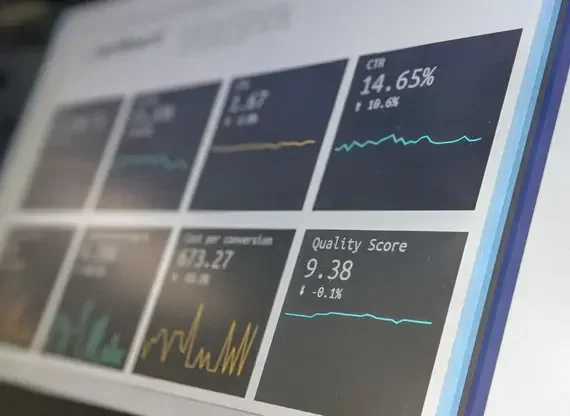
September 11, 2019
Time travels fast, but innovation is faster. Cultural adoption lags in comparison to the pace of innovation. Every day industry media breaks the news of a technology that can alter an image using your mind. Or entire forests that grow on the sides of buildings. Or Elon Musk sending people to vacay on the moon. What seems outlandish one day becomes normal, seemingly in the blink of an eye.
Time travels fast, but innovation is faster. Cultural adoption lags in comparison to the pace of innovation. Every day industry media breaks the news of a technology that can alter an image using your mind. Or entire forests that grow on the sides of buildings. Or Elon Musk sending people to vacay on the moon. What seems outlandish one day becomes normal, seemingly in the blink of an eye.
The digital health space is no exception. And with each years’ funding outpacing the last, finances are flowing to sectors that financiers believe have potential. Twenty-seventeen raked in $5.7 billion, and 2018 boasted $8.1 billion. We’re only half way through 2019 and have already hit $4.2 billion – a pace that analysts predict will become another record-breaking year. This funding is an indication of both demand and market disruption potential.
With all this attention, it can be a challenge to sort out the signal from the noise. What has traction? What will stick? What will grow, and what will fade away? We’ve identified three key areas within the digital health space that deserve your attention right now: Digital Therapeutics, Voicetech, and consolidation of the market.
Digital Therapeutics
Digital Therapeutics, known as DTx, are the evidence based therapeutic interventions, driven by software, to prevent, manage, or treat medical conditions. Not to be confused as a competitor to the pharma industry. Rather, viable DTx solutions tend to work in collaboration with it instead. DTx is an appealing less-invasive and cost efficient solution for everyone, which means that the ripple effect of adaptation and adoption is happening fast. The question on many minds is how healthcare systems can be reimbursed for this new approach. Luckily the “FDA is starting to recognize DTx and its medical outcomes. DTx companies are exploring business models based on payer reimbursement.” says Bayer G4A’s Dr. Javier Palacios. He goes on to comment that “a good example of analogic pathways existing currently for APIs can be found in 505(b)(2), currently used for indication expansion, companion therapies or Rx to OTC switch, allowing companies to have an expedited approval process and potentially qualify for 3, 5 or 7 years market exclusivity.” All signs point to a future in which DTx will rely on continued partnerships across disparate sectors to knit the ecosystem into tighter harmony. The DTx market is expected to reach $7.1 billion by 2025.
Voicetech
Hollywood was perhaps the first industry to bring Voicetech into American living rooms. Her, starring Joaquin Phoenix and Scarlett Joahnnsons voice, grossed $47.4 million globally back in 2013 and put Voicetech on the map just after Siri hit the market (2011) and before Amazon’s Alexa (2014). Today, Thirty-five million Americans use a voice assistant at least once a month. But in healthcare, the technology is serving a good far greater than simply setting a timer. Voicetech supports patients with adherence to care plans via reminders, facilitates efficient communication between patients and providers through scheduling and symptom management, and even tracks disease progression. Parkinson’s patients are especially benefiting from Voicetech technology with a little help from companies like Beyond Verbal or Healthymize. They work in the background to track specific biomarkers for voice pitch, rate, and speed which gives providers critical information as to how the patient is faring in everyday life. Having inundated just about every market - automotive, retail, healthcare, and more - experts predict that the voice tech sector will triple in value in 2019 over previous years.
Consolidation
Consolidation… the natural byproduct of a burgeoning market. The industry is teeming with startups, all of who promise silver bullets for healthcare’s greatest pain points. And many of them really do have it. On the other end of the spectrum lie resource-rich companies too large to move with the dexterity startups possess. It’s a match made in heaven as large entities absorb external innovation. In an entrepreneur’s world, it pays to have a few years under your belt. Mature startups like Flatiron, PillPack, and Tueo Health were gobbled up by Roche, Amazon, and Apple, respectively. Twenty-nineteen has already closed over 180 deals. So what happens next? In the presence of consolidation, there emerges a new road for innovation. There are fears that consolidation will lead to monopoly-type behaviors, especially within the public health realm where a local, on-the-ground approach reigns supreme. Only time will show how the market will steady itself, but in the meantime, analysts predict 2019 to be another record-breaking year for investment and M&A activity.
It goes without saying that all of the above would not be made possible without unprecedented amounts of data and machine learning tools to know what to do with it all. And in case you’re wondering what kind of trends list would exclude Artificial Intelligence, don’t worry, it’s here. Artificial Intelligence plays an important role, often integrated into Digital Therapeutic and Voicetech solutions for a futuristic bend.
And as we look to the future, Bayer’s G4A program is here to identify and support young companies evolve into the kind of powerhouse change-makers the ecosystem requires. The 2019 startup class and partnerships will be announced soon… stay tuned!

Grace Moen,
Writer, Digital Health